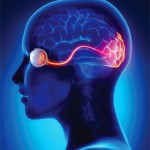To ensure adequate and appropriate reimbursement, rheumatologists must provide detailed information about their services to the people advocating on their behalf. With the proper information, advocates can then do the work necessary to secure the appropriate values for these services. These advocates are members of the Relative Value Update Committee (RUC), a volunteer committee of…

Mary Beth Nierengarten is a writer, editor and journalist with over 25 years of medical communications experience. She is a regular contributor to a number of online and print publications and writes in most clinical areas, as well as on health policy and economic issues. She lives in Minneapolis and can be reached at [email protected].
Articles by Mary Beth Nierengarten

How to Manage Polymyalgia Rheumatica
Recognizing the need to provide guidance on the current disparate management of polymyalgia rheumatica (PMR), the American College of Rheumatology (ACR), in collaboration with the European League Against Rheumatism (EULAR), recently published the first international set of recommendations for the screening, treatment and management of PMR.1,2 Specifically, the recommendations offer guidance on the use of…

Patient-Centered Care Model for RA Flares Could Improve Self-Management of Symptoms
A recent trend to incorporate patient-reported outcomes (PROs) in clinical research, and ultimately clinical practice, is a response to the need to better measure and treat what patients truly care about, and adapt to the changing healthcare environment, which increasingly includes patient satisfaction as a key metric for overall quality of care, a metric tied…

Diagnostic Criteria Released for Neuromyelitis Optica Spectrum Disorders
Recent updates to criteria used for diagnosing neuromyelitis optica (NMO) are aimed at helping physicians make the differential diagnosis of this disorder differentiating it from other inflammatory disorders—a diagnosis that can be difficult given the presenting symptoms that can mimic a number of other conditions, such as multiple sclerosis. Published in July 2015, the new…

Meditation May Help Prevent Physician Burnout
Physician burnout is high and climbing. A 2015 report published by Medscape showed that nearly half (46%) of physicians surveyed responded that they were experiencing burnout; that number is up from 39.8% reported in a similar survey in 2013.1 These physicians experience the tell-tale signs of burnout: loss of enthusiasm for work (or emotional exhaustion),…

Diagnosing, Treating IgG4-Related Disease
In diagnosing and treating a disease that is rapidly gaining recognition worldwide since it was first recognized in Japan in 2003, 42 experts from 10 different countries recently collaborated to discuss and review the current experience and data on IgG4-related disease. The result is the “International Consensus Guidance Statement on the Management and Treatment of…

Disease Management Programs Help Patients Cope with Chronic Diseases
For patients living with a chronic disease, such as rheumatoid arthritis or osteoarthritis, learning to manage and cope with the myriad adverse symptoms that accompany these diseases is key to improving quality of life and helping reduce the cost burden of these illnesses on the healthcare system. One important way rheumatologists can help is by…
2014 ACR/ARHP Annual Meeting: Macrophage Activation Syndrome
The pathogenesis of and new classification criteria for MAS
2014 ACR/ARHP Annual Meeting: Regulatory T Cells
Rheumatology experts explore ways Treg cells contribute to autoimmune diseases, RA
2014 ACR/ARHP Annual Meeting: Immunology Update on Innate Lymphoid Cells
Experts highlight research on the overlap in innate and acquired immune responses underlying rheumatic diseases
- « Previous Page
- 1
- …
- 11
- 12
- 13
- 14
- 15
- 16
- Next Page »